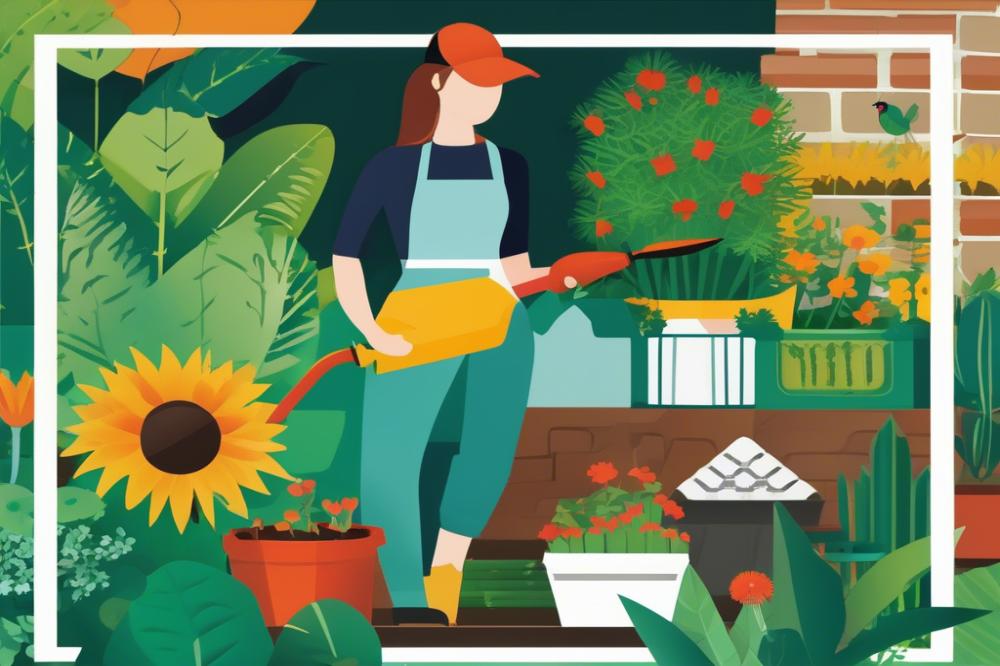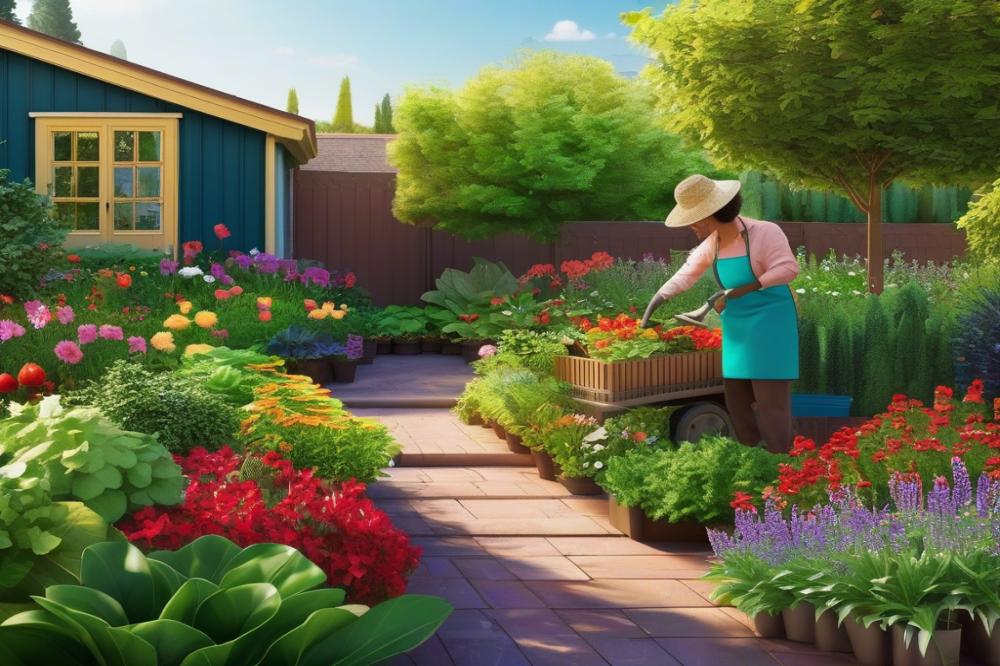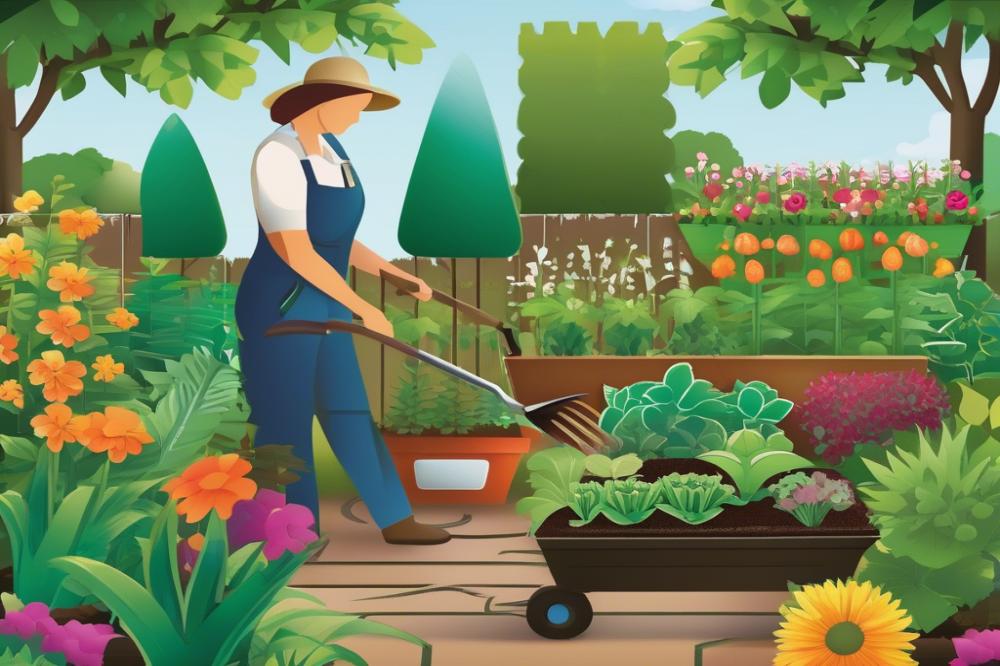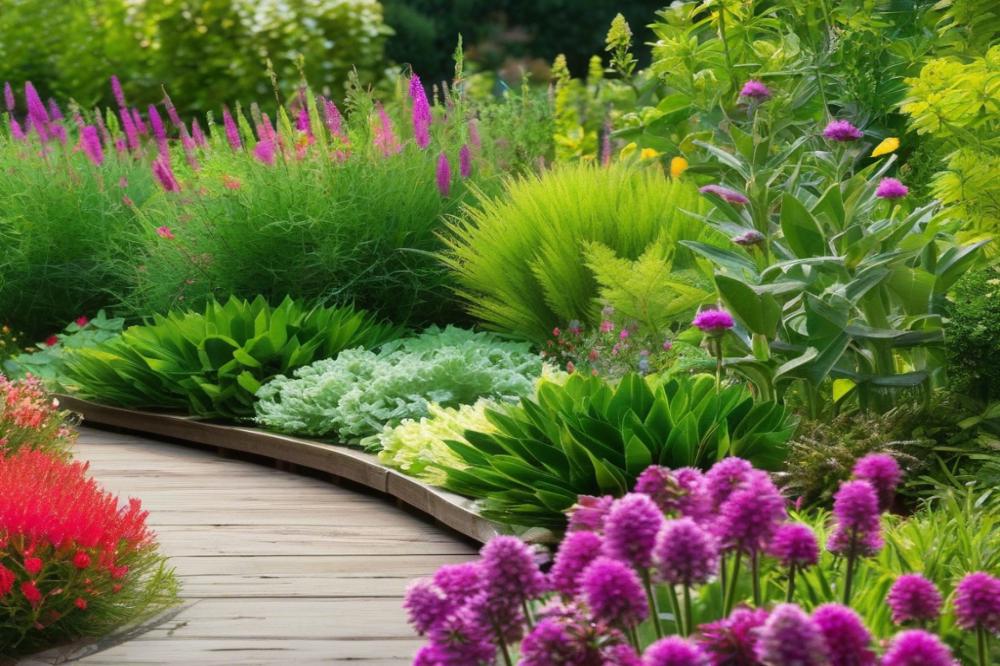Introduction
organic gardening practices focus on growing plants in a way that is natural and sustainable. This method not only nurtures soil health but also promotes plant growth without harmful chemicals. Enthusiasts of this approach often seek to create a thriving ecosystem where beneficial insects can flourish alongside their plants. Eco-friendly solutions play a crucial role, especially when it comes to pest control and garden care.
In a world where the safety of our food supply is paramount, choosing non-toxic solutions is essential. Using natural fertilizers helps maintain a healthy garden environment. These options contribute significantly to the ecosystem, protecting both plants and beneficial insects that are vital for pollination. A thriving garden can serve not only as a source of fresh produce but also as a sanctuary for wildlife.
Among the many tools available for organic gardening, castor oil stands out. Its unique properties make it a significant player in nurturing gardens while keeping pests at bay. As gardeners continue to explore sustainable gardening practices, castor oil offers a reliable method to combat common issues without sacrificing the health of their gardens. This natural compound brings peace of mind to those who wish to maintain their gardens responsibly.
The Benefits of Castor Oil in Organic Gardening


Castor oil is derived from the seeds of the castor bean plant. This oil contains ricinoleic acid, which has various beneficial properties for gardening. Its natural composition makes it an excellent fit for those following eco-friendly and sustainable practices.
Role as a Natural Pesticide
One of the most notable uses of castor oil is its effectiveness as a natural pesticide. Gardeners appreciate its ability to repel unwanted pests without harmful chemicals. It works effectively against common nuisances like aphids, caterpillars, and beetles, keeping your plants safe. Many organic practitioners have found that using castor oil enhances plant growth by minimizing pest damage.
Non-Toxic Solutions for pest control
Opting for natural solutions helps maintain a healthier garden ecosystem. The right approach prevents negative impacts on beneficial insects, like ladybugs and bees, which are crucial for pollination and pest control. Castor oil helps you create a balanced environment, allowing these helpful creatures to thrive. Treating your plants with this oil gives you a non-toxic barrier against pests, supporting soil health and overall plant vitality.
Castor Oil as a natural fertilizer


Nutrient Composition of Castor Oil
Castor oil is an impressive source of nutrients. It contains ricinoleic acid, a compound that helps improve soil fertility. Essential fatty acids found in this oil can promote overall plant health. These nutrients become accessible as the oil breaks down in the soil, allowing plants to absorb them efficiently.
Benefits of Using Castor Oil as a Soil Amendment
Employing this natural fertilizer can lead to remarkable benefits. It enhances moisture retention in the soil, which is crucial for plant growth. This oil can also act as a deterrent to harmful pests, providing an eco-friendly solution for garden care. When applied correctly, it fosters a balanced ecosystem, encouraging beneficial insects to thrive.
Impact on Soil Health and Promoting Sustainable Gardening
Improving soil health should be a top priority in organic practices. Castor oil aids in building soil structure and increasing nutrient availability. This non-toxic solution contributes to sustainable gardening efforts by reducing the need for chemical fertilizers. Healthier soil leads to stronger plants, resulting in a more productive garden. By using castor oil, gardeners move toward practices that are environmentally friendly and support a vibrant ecosystem.
Enhancing Plant Growth with Castor Oil


Castor oil offers incredible benefits for plant growth and resilience. It serves as a natural fertilizer that enhances the development of plants. When applied correctly, this eco-friendly product can lead to healthier foliage and stronger root systems. Plants become more robust when they receive the right nutrients.
Starting seeds can sometimes be tricky. A little bit of castor oil can change that. Treating seeds with this product can promote better germination rates. This natural solution works by softening seed coats and improving moisture retention. It essentially gives those seeds a head start in their growth journey.
Understanding soil health is key to sustainable gardening. The oil contributes to balancing nutrients in the soil, creating an optimal environment for plants. By using it, you support beneficial insects that help combat pests effectively. You’re not just feeding your plants; you’re nurturing the whole ecosystem.
Many gardeners appreciate how versatile castor oil is in garden care. It acts as a non-toxic solution for pest control, ensuring that unwanted guests stay away without harming the environment. Each application of this oil helps in creating a thriving and vibrant garden.
Using Castor Oil in Integrated Pest Management


Incorporating castor oil into pest management plans can be a smart move for any gardener. Its properties help keep unwanted creatures at bay. Mix castor oil with water and a few drops of natural soap to create a spray. This blend acts as a repellent, making it harder for pests to invade your plants.
Combining different strategies makes pest control more effective. For example, consider using this oil alongside other organic practices like introducing beneficial insects. Ladybugs and lacewings thrive in environments free from harmful chemicals, benefiting from a balanced ecosystem. These natural allies will help keep pest populations in check while promoting soil health.
Monitoring your garden is essential for creating a successful integrated pest management plan. Keep a close eye on the health of your plants and watch for signs of pest activity. Early detection allows for timely intervention. By maintaining plant growth and wellbeing, you’ll create a thriving environment that discourages infestations. Staying proactive and aware can lead to eco-friendly solutions that support sustainable gardening.
Castor Oil Recipes for Garden Remedies
Using castor oil in your garden can be a game changer. This natural solution works wonders for pest control and helps promote soil health. Below are some easy DIY recipes that will transform your gardening practices.
DIY Pest Repellents and Fertilizers
Mixing castor oil with water can create a potent pest repellent. Combine two tablespoons of the oil with a quart of water. Add a few drops of liquid soap to help it mix well. Spray this solution around your plants to protect them from unwanted pests. This mixture is safe and eco-friendly, and best of all, it won’t harm beneficial insects.
For a natural fertilizer, blend one cup of the oil with five gallons of warm water. Let it sit overnight, then use it to water your plants. This will not only nourish them but also encourage strong plant growth and contribute to sustainable gardening practices.
Safe Application Methods and Dosage Recommendations
When applying any garden remedy, safety is key. Aim to use the pest repellent mixture every two weeks for optimal results. Remember, a little goes a long way, so don’t overdo it. A light spray helps to deter pests without damaging your plants.
As for fertilizer, once a month is a good routine. Too much can lead to nutrient imbalances. Always observe your plants for any signs of distress or improvement. Adjust your technique as needed to maintain their health.
Homemade Solutions: Combining Castor Oil with Other Natural Ingredients
Get creative with your garden remedies! You can mix castor oil with essential oils like peppermint or clove for an extra kick against pests. Simply add a teaspoon of essential oil to your pest repellent mix. The added fragrance also makes it more pleasant for you while you work in the garden.
Another great combination includes castor oil, garlic, and cayenne pepper. Blend these ingredients together to form a potent spray. This mixture repels multiple types of pests while promoting overall soil health. It’s a triple whammy for your garden care routine!
Organic practices like these not only keep your plants thriving but also support the environment. Explore these remedies to make your garden a lush haven while being responsible. Non-toxic solutions are the future of gardening, and you’re on the right path!
Final Thoughts
In summary, castor oil has proven itself as an effective tool in organic gardening. Its benefits range from acting as a natural fertilizer to serving as a pest control solution. This versatile substance supports healthier plants and enriches the soil. By incorporating it into your gardening routine, you embrace a sustainable approach while promoting the well-being of your garden.
Adopting castor oil, alongside other eco-friendly practices, can transform your gardening experience. Consider using it for its wide array of applications. Whether you’re nurturing seedlings or battling unwanted insects, this oil can be a game changer. Many gardeners are already reaping the rewards of such methods. It is time for more people to explore these environmentally friendly options.
The importance of maintaining a sustainable garden ecosystem cannot be overstated. Planting and caring for your garden in a responsible way contributes to a healthier environment. Choosing natural products helps preserve biodiversity and supports local wildlife. Every responsible action taken today paves the way for a greener tomorrow. So, let’s cultivate and protect our gardens with both love and care.



